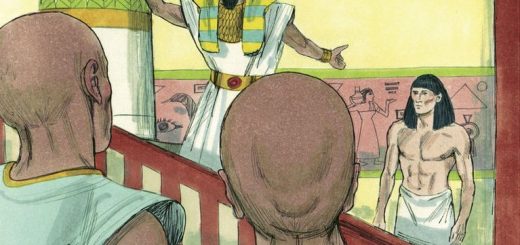Zeal for Your House
Reflections by our Youth Interns
Jenwei
John 2:12-22 essentially speaks about Jesus’ anger towards the misusing of God’s temple for selfish purposes. As in many of the Gospel accounts, the passage shows Jesus at loggerheads with Jewish religious leaders. The Gospels often lead us to reflect on our similarities with the religious leaders as symbols of sinful, arrogant selfish Man; this passage, I feel, is no exception.
Part of understanding how large a sin we commit in misusing God’s gifts is understanding the greatness of God’s gifts to us. In John, at first glance we see Jesus depicted as something of a maniac — after all, as mentioned in the sermon, He has been to the temple before and is accustomed to its methods. Why suddenly kick up a fuss, especially through what must have been the most disruptive means possible? It is only through understanding the significance of the Passover and the Temple that we can begin to understand the anger Jesus must have felt. Personally, I’d never heard the significance of these described so vividly before. It is easy to forget that we live in vastly different times from people of that era. Today, by the grace of God, we can come freely to Him and the physical temple holds rather less importance because of that. To Jews of that era, however, it was the only place and way they had interaction with God, and the defiling of that was certainly far bigger an issue than I’d previously imagined.
I imagine, however, that the sources of Jesus’ anger must have been at least twofold. Quite apart from the Temple being used as a business opportunity for selfish purposes — angering enough in and of itself — the outcome of that was the sense of unworthiness it must have given to Jews less well off financially. I dare say this angered Jesus even more than the previous point did, because it represents the ultimate perversion of His Father’s name — it added conditions to an unconditional love. To mislead those who knew no better into thinking that God was a God of conditions, for no reason other than for the furtherance of selfish desires, must have been something that infuriated Jesus no end.
It is easy, having completed this narrative, to comment about the sinfulness of the religious leaders from up on one’s high horse. Do we do the same? Upon closer introspection, the unfortunate answer can only be yes. Certainly at some point in our time in church we have used this holy medium to feed our own self-importance and pride; certainly at some point this has been detrimental to others’ walk with God. This is something striking to me upon studying the Gospels in general. Through childhood we are told stories of Pharisees as ‘bad guys’ opposing Jesus. It is only later that we realise we are no better ourselves because many of the sins they commit ensnare us in the same way.
Praise God, then, that we have Jesus, the great Reformer who can transform this Temple. Praise God that in spite of how we pervert His name He still deigned to come down and die for us; praise God for being a God of suffering and of sacrifice for our sakes. Jesus isn’t safe — but He’s good, and ‘He’s the King, I tell you’.
Sheryl
Looking at the previous chapter, it describes to us who Jesus is and how He showed His disciples that He came to bring life, light and joy, through signs. But in this passage, He did things very differently. I’ve always associated Jesus’ cleansing the temple, as the day Jesus got angry. In this passage, He drove people out of the temple, emptied money boxes and overturned tables. His actions probably offended the Jews who were there for the Passover and puzzled the disciples.
Upon Jesus’ entrance to the temple, He saw His Father’s house being turned into a ‘house of trade’ for moneychangers and merchants. The temple was supposed to be the dwelling place of God among His people, the place where people came to God for a relationship and to be close to Him — the meeting of heaven and earth. Yet, the Jewish leaders exploited the temple, to suit their own needs. This portrays God as a calculating businessman, not a loving Father. Their actions deprived the Gentiles of opportunities to come to God.
What about grace? Free grace was no longer free. It became expensive and non-affordable, preventing people from coming to God. Jesus demonstrates how He detests it when we take what demonstrates who He is into something to benefit ourselves. This made me think if we’re similar to them, creating barriers that prevent people from coming to Him, in terms of our actions and attitudes towards others. Are we accepting of those around us? Also, the temple was a place for self-sacrifice, a place to serve others, and at the same time build each other up. Are our actions similar to the merchants at the temple, pleasing and comforting to ourselves?
Like Malachi 3:1-3, Jesus came to refine, purify and reform the temple, from one of trade to one of grace. Also, the disciples recalled Psalm 69:9, ‘Zeal for your house will consume me’, and recognised Jesus as the Messiah who burned with zeal for God’s house. Jesus declared to the Jews, ‘Destroy this temple, and in three days I will raise it up.’ But they did not understand that Jesus was referring to His own body and this was a sign of Jesus’ death. Through His death, He reconciles us to God and makes us the temples of God. As Christians we are called to go out into this new world and not hide ourselves but bring reformation to the world, just like the resurrection of Jesus.
Similar to the new wine and replacement of the temple, the resurrection of Jesus depicts replacement, reformation taking place, where Jesus came as the Messiah who came to rebuild a spiritual kingdom, where we can all come to worship without bringing animal sacrifices. The passion of Jesus is to show who the Father really is. This zeal that Jesus had should be a zeal we should embrace, for His Church.







